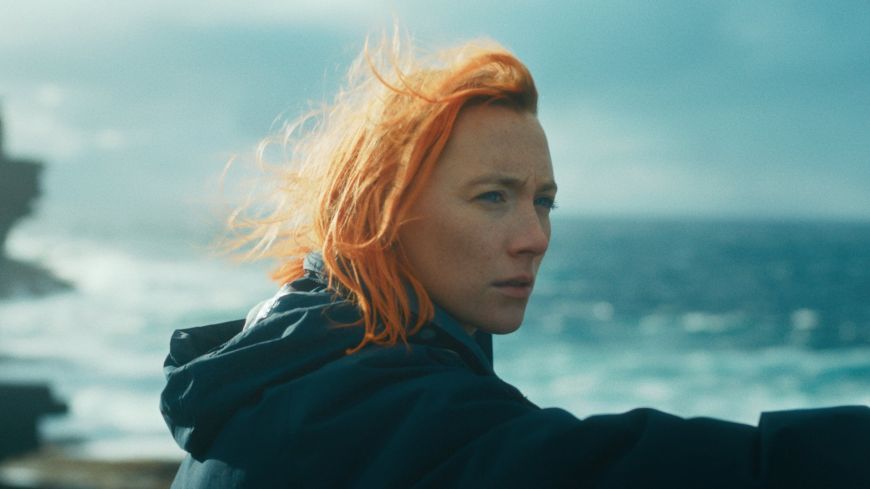
Amy Liptot's book The Outrun, charting her personal struggle with alcoholism, has two adaptations premiering in Edinburgh this August. The Edinburgh International Festival currently has a stage version running at the Church Hill Theatre and the other is Nora Fingscheidt's screen adaptation of her memoir which opened this year's Edinburgh International Film Festival last night.
A film about alcoholism and sobering up is definitely not the most obvious way to kick off a festival, but you can see the attraction for a Scottish film festival of opening with this visually and sonically creative feature. Orkney's rough and desolate landscape infuses the film with a brooding Northern atmosphere and it features a strong central performance from Saoirse Ronan as Rona, who is pretty much on-screen for the whole film.
Nora Fingscheidt's adaptation jump cuts from the main character Rona's wild bouts of blackout drunken hedonism in London (and the messy aftermaths), to the wind-swept Orkney isles, where she grew up, where there is space to escape to during her fragile recovery and worklife revolves around lambing on her dad's farm and tracking down an endangered corncrake (a secretive bird native to Orkney).
The technique of blending time and place (Orkney and London) is used throughout in the non-linear narrative. Fingscheidt layers up a picture of a spectacularly drunken lifestyle, that leads to an all-too-predictable downward spiral into self-inflicted humiliations as Rona takes a wrecking ball to her romantic and academic life.
Juxtaposed are scenes of Orkney, with its rugged landscapes where there are more sheep than people and huge waves pummel cliff faces. Rona's voice-over narrative weaves together mythology (selkies and monsters) with scientific titbits that reflect both Rona's training as a biologist and the inspirational nature of these northerly isles.
Orkney comes with its own set of problems though for the restless Rona, in the form of her bible-bashing mother and bipolar father. Both are loving but distant in their own way, reinforcing Rona's physical and psychological solitude and loneliness.
Dialogue feels scant, and there's few moments of humour. Ronan's milky blue eyes suggest much of her inner emotional state, bursting with life when intoxicated and comfortably numb when wandering the blustery coast with techno beats blasting through the headphones.
To its credit, the film doesn't offer a pat solution to a gritty problem, so there's no big pay-off, but a memorable symphonic climax shows Rona regaining control of her life without the need to hit the bottle.
Gürtler and Miserre's score is an effective one, weaving house with orchestral music nicely in-sync with the at-times appropriately choppy editing, although there is a little too much thumpy techno for my liking (and I like techno).
American-born Ronan does well to draw you into her character's struggle, and her accent holds up well, but secondary characters are not quite developed sufficiently for chemistry to really cook up a storm.
As a personal psychodrama, the almost two-hours felt on the long side. However, you leave the cinema appreciating the power of living in a remote, and at times fiercesome place, such as Orkney, to sooth a troubled soul.

